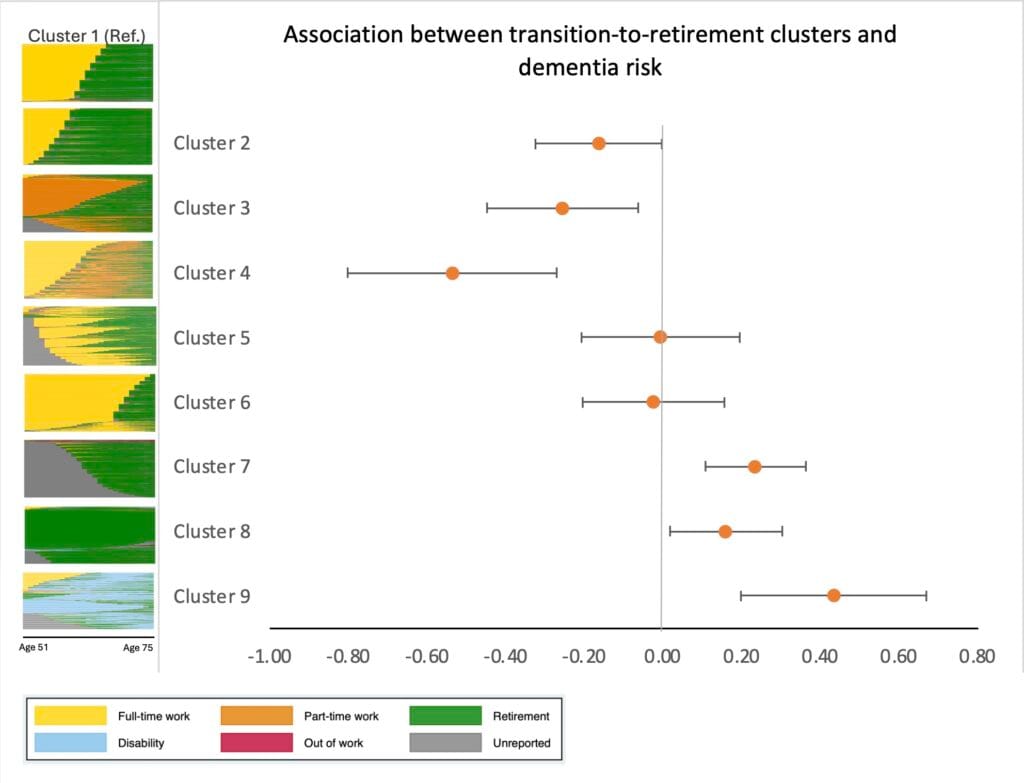Aging
Retirement paths and dementia risk: an application of sequence analysis Lucia Pacca* Lucia Pacca Anusha M. Vable Amal Harrati
There is a relationship between retirement and cognition, however questions remain regarding the transition to retirement including retirement timing, transitions to part-time work before retirement, s and associations with subsequent cognition.
We used data from N=10,831 Health and Retirement Study (HRS) participants. Using self-reported employment information, we classified each year between ages 51-75 into one of six mutually exclusive categories: working part-time, working full-time, retired, disabled, out of the labor force or unreported. We used sequence analysis to quantitatively compare individual transition-to-retirement trajectories, and hierarchical agglomerative clustering to group similar trajectories. Our outcome was a dementia probability score from age 76 onwards. We used generalized estimating equations to estimate the association between employment trajectories and dementia adjusting for age, gender, race and ethnicity, education and wave of outcome measurement.
We identified 9 transition-to-retirement clusters (Figure 1). Compared to typical retirement (cluster 1, reference, characterized by full-time work followed by retirement between age 60-65), we found that retiring 5-10 earlier after full-time work (cluster 2) was associated with lower dementia risk (b:-0.16, CI: -0.32, 0.0). Retiring at any time after part-time work (Cluster 3) was associated with lower dementia risk compared to the reference group (b:-0.26; CI: -0.45, -0.06), and transitioning from full-time to part-time work before retiring around age 70 (Cluster 4) was associated with the lowest dementia risk (b:-0.54, CI:-0.80, -0.27). By contrast, retiring with unreported prior employment (Cluster 7), retiring around age 50 or earlier (Cluster 8) and retiring before or after a period of disability (Cluster 9) were associated with higher dementia risk.
Results suggest that timing of retirement, part-time employment and periods of disability or unreported work are differentially associated with later-life dementia risk. Transitioning to part-time work before retirement was associated with the lowest dementia risk, suggesting combining a better work-life balance with the cognitive and social stimulation offered by employment may be particularly beneficial for cognition.

